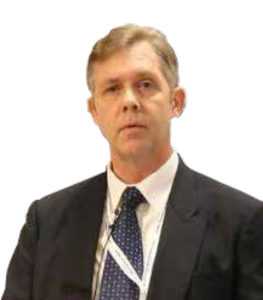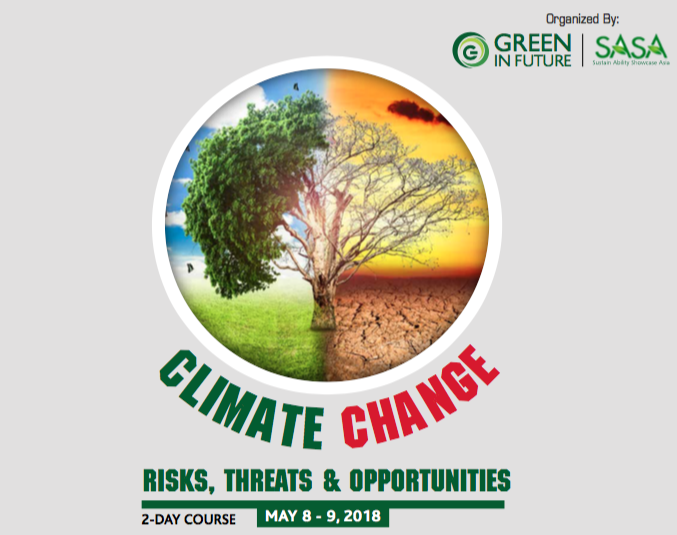
The Earth is out of radiative energy balance. There is more energy coming into the Earth’s atmosphere than is being radiated back to space. The reason for this is the excess of greenhouse gases (GHGs), primarily as carbon dioxide (CO2), that are being emitted to the atmosphere from our combustion of fuels (coal, oil and natural gas). If this energy imbalance is not addressed then the world will continue to warm with dire consequences for humanity and wildlife.
The Earth’s energy imbalance is now being quantified accurately by a global array of Argo floats - a flotilla of over 3,000 remote sensing devices distributed throughout the world’s oceans that are constantly monitoring its heat content. Over time, the Argo floats have measured a large and growing global energy imbalance. In the period from 2005 to 2016 the increase in ocean heat content measured by the Argo floats was equivalent to a planetary energy gain equal to the detonation of over 500,000 Hiroshima-sized nuclear weapons - every day. This level of energy gain in the Earth’s climate system has become the key driver for the observed increase in extreme weather events around the world, the disintegration of the planet’s ice-sheets and a threat to the stability of global ecosystems.
Levels of CO2 in the atmosphere are now at 413 ppm, up from a pre-industrial level of 280 ppm. As a result, global warming is both accelerating and intensifying, where the radiative forcing from GHG emissions is 40% higher since 1990. The month of July 2019 was the warmest month ever to be recorded since records began in 1850, where the warmest 20 years have all occurred in the last 22 years. The last 4 years have been the warmest of all. Overall, average global surface temperatures have now risen by about 1oC since the start of the industrial revolution about 250 years ago.
Satellite measurements have confirmed that the Greenland and Western-Antarctic Ice-sheets are now losing ice-mass at an accelerating rate. In turn, this is driving non-linear changes in the climate system and a faster rate of sea-level rise. Paleoclimate evidence, from the Earth’s climate history, shows that during the Eemian interglacial period (about 120,000 years ago) that sea levels, at thermal equilibrium, were up to 9 metres higher than today. For a predicted level of global warming of over 30C by the year 2100, then the world will resemble the climate of the midPliocene (3-5 million years ago) where sea levels, at thermal equilibrium, were between 15 and 25 metres higher than today. These ancient changes in the radiative heat balance of the planet were caused by slow and steady changes in the Earth’s orbit and spin axis operating over a time scale of hundreds of thousands of years. In contrast, the rate of global now taking place is much more rapid and completely unprecedented in the paleoclimate record.
In October 2018, the United Nations issued a stark warning to the world. We have just 12 years to avoid a committed mean global temperature rise of 1.5oC, or risk triggering catastrophic climate change. According to the UN, keeping to the 1.5oC target under the 2015 Paris Climate Agreement will require “rapid, far-reaching and unprecedented changes in all aspects of society” to avoid what the UN refers has previously referred to as “dangerous anthropogenic interference with the climate system”.
The intricate relationships that exist between global ecosystems and biodiversity play a vital role in controlling the fluxes of GHGs and regulating climate stability. Coupled with the climate crisis, the world is also facing an equality dire ecological crisis which has been caused by the rapid and extensive degradation of the planet’s ecosystems, including its oceans, forests, and wetlands.
As a result, the Earth has now entered its sixth-mass extinction event, where the rate of species loss has risen to between 100 and 1000 times higher than natural background levels. In the last 50 years alone, the world is estimated to have lost over 60% of its wildlife, and about 75% of the planet’s land area is now degraded as a result of modern agricultural practices and rapid urbanisation.
Nothing short of massive, strong and global coordinated global action is now required to prevent a climate catastrophe and ecological breakdown, and their associated risks to humanity. A return to the climate of the current Holocene interglacial period, in which human civilisation developed, requires that the Earth’s radiative energy imbalance be corrected via rapid GHG reductions and the restoration of global ecosystems.
Singapore faces unique threats and opportunities in the face of a rapidly changing climate system and
the global ecological crisis. As a small, tropical island state nation, Singapore is increasingly vulnerable to both rising sea levels and warmer temperatures. The nation also faces indirect threats from a disruption of the global food supply chain as a result of changing weather patterns. In the face of these threats, Singapore is nonetheless well-placed to increase its resilience to climate change by developing appropriate adaptation and mitigation strategies. By leveraging its economic strength, its robust urban planning system, and its advanced research capabilities, Singapore has a unique opportunity to rise to the challenges of a changing climate. Furthermore, as a leader in the ASEAN region, Singapore also can develop advanced technologies to address sustainability challenges and lead the way for the rapidly growing nations of Southeast Asia.
by

Prof. Jeff Obbard
Living Planet Pte Ltd has been recently established in Singapore by Professor Jeff Obbard, an environmental scientist and ecologist who has spent the last 25 years living and working in Singapore, and around the world. Jeff spent over 17 years working at the National University of Singapore (NUS), in the Faculty of Engineering. He was also the Research Director at the Tropical Marine Science Institute, and was also as Director of its Sustainable Development & Water Alliance. During his time at NUS, Jeff served as the Principal Scientist for Bioenergy at the Agency of Science & Technology, and as Vice President for Science & Technology on a Royal Dutch Shell Petroleum project to develop low-carbon, renewable biofuels in Hawaii, USA. He has also served as an Expert Reviewer to the Intergovernmental Panel on Climate Change and led a team from NUS to win the United Nations Mondialogo Award for Sustainable Development. Jeff is also as a Visiting Professor to the School of Water, Energy & Environment at Cranfield University in the UK - one of the UK’s leading postgraduate engineering universities
By establishing Living Planet in Singapore, Prof Jeff will provide strategic advice to government and industry on matters relating to sustainable development, climate science and natural resource management. Prof Jeff is also a Board Member and Advisor to GreenIn-Future. “Living Planet looks forward to working in close partnership with Green-in-Future to provide expert advice and solutions to our clients on their sustainable development challenges”, he said.
You can contact Prof Jeff Obbard via his Linked-In profile at www.linkedin.com/in/jeff-obbard-phd, or via his email at obbardjeff@gmail.com.

 Interview with Prof. Dr. Jeff Obbard, Environmental Scientist
Interview with Prof. Dr. Jeff Obbard, Environmental Scientist


